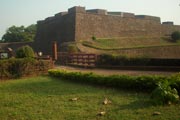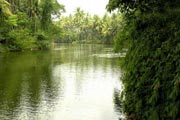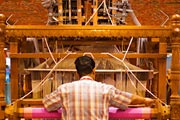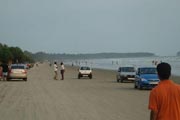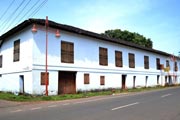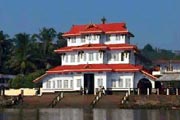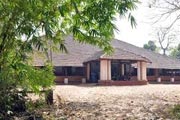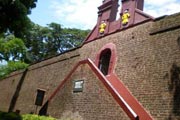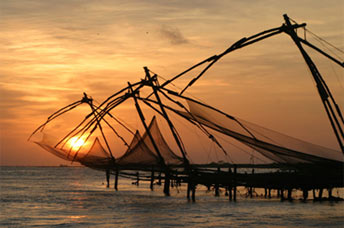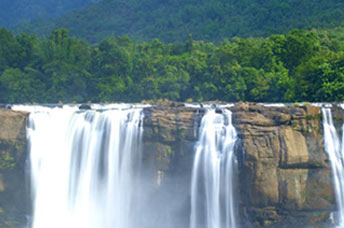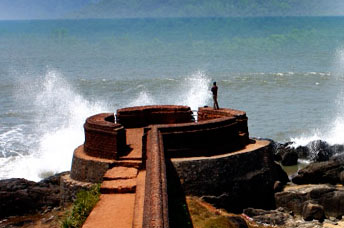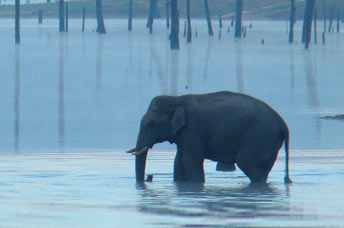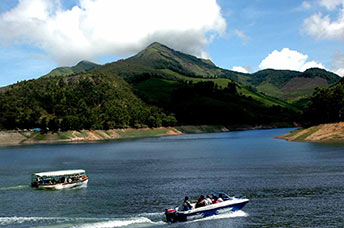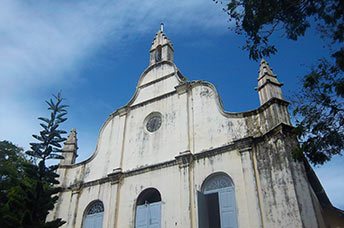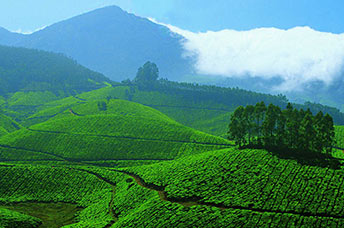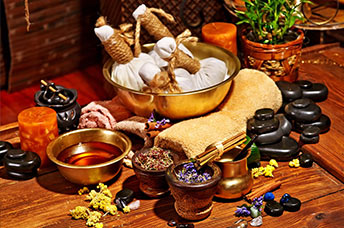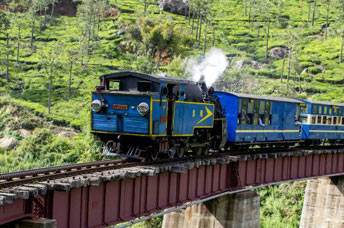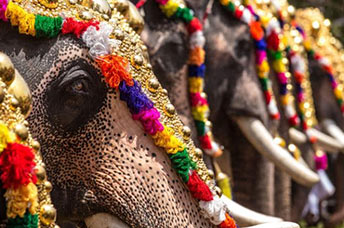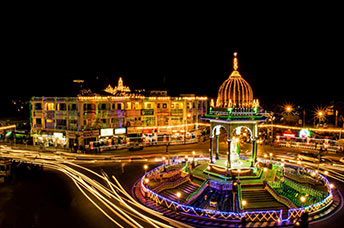British colonizers named the town Cannanore though the original name may have been derived from a combination of the name of a local diety, ‘Kannan’ (Lord Krishna) and the vernacular ‘Ur’ (‘place’ or ‘region’).
With ancient forts, shrines and venerable cultural and educational institutions, Kannur has a remarkable history. Its picturesque landscapes and the social ethos of its people have been the cradle of many a colorful folk art form like Theyyam.
The harbor in Kannur is also believed by many scholars to be the ancient port of Naura, from whose shores King Solomon’s ships collected timber to build the great temple of Jerusalem. Well known to the Greeks, Romans and the Arabs, it was referred to by the celebrated traveler, Marco Polo, as a great emporium of the spice trade.


